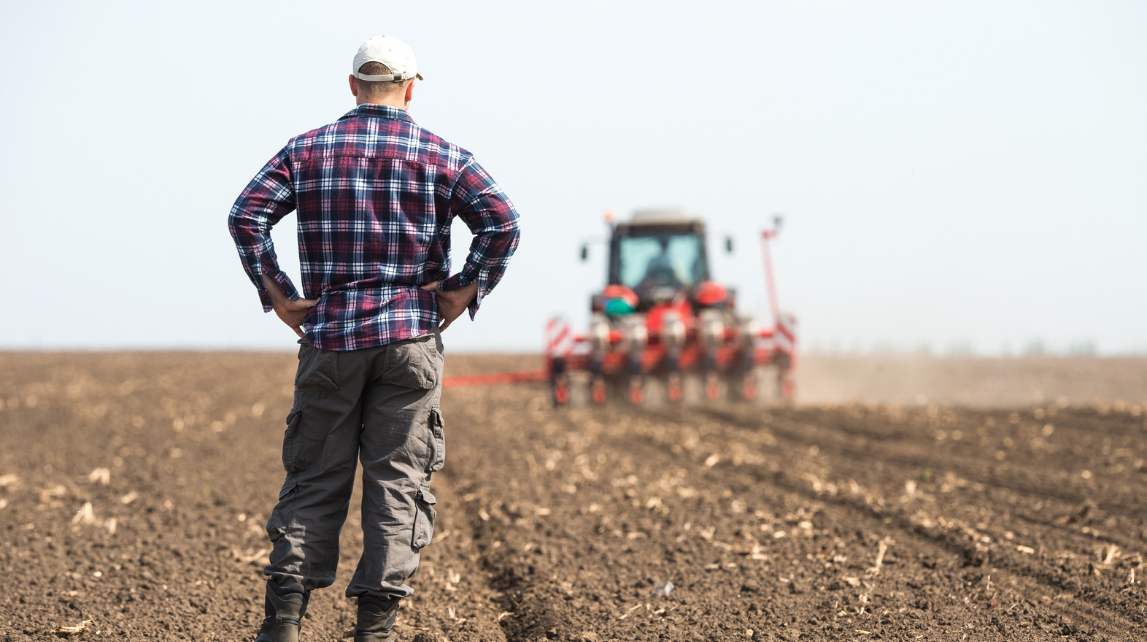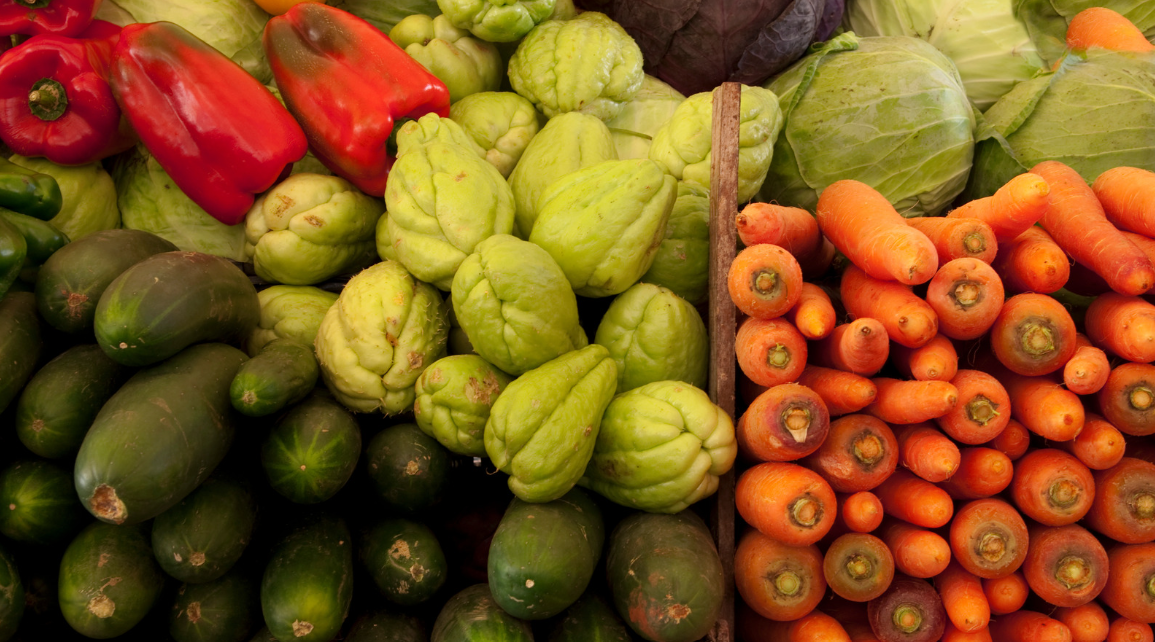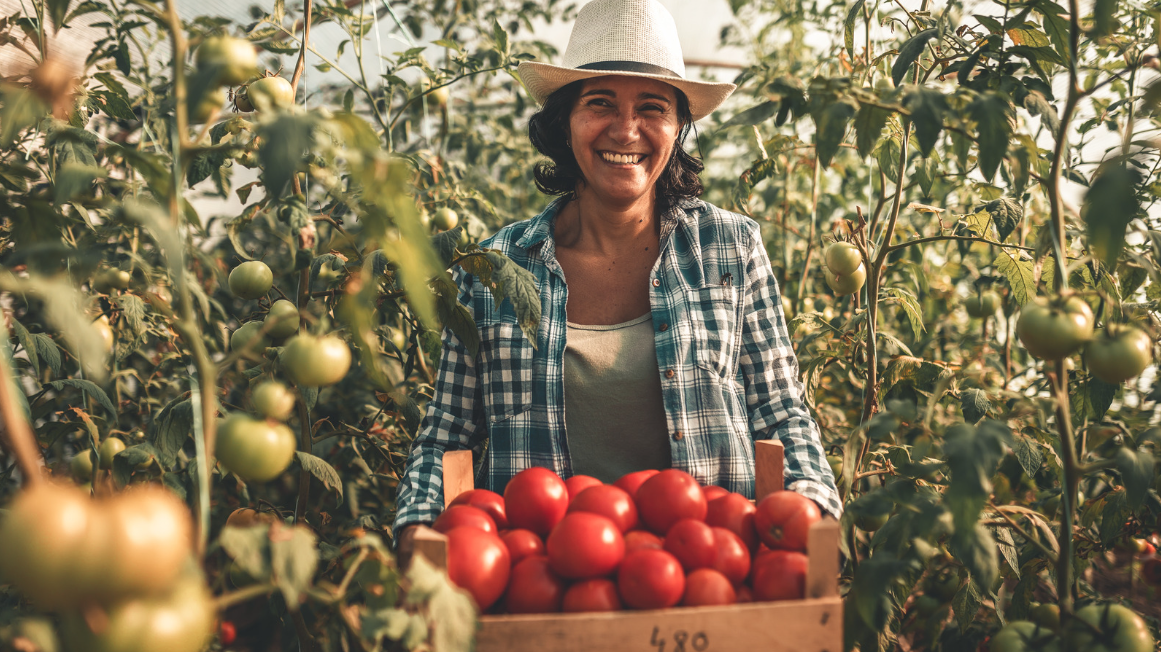Sourcing Local: The Benefits of Supporting UK Farmers and Suppliers
Recently, there has been a growing movement towards sourcing local products and supporting local farmers and suppliers. This shift in consumer behavior is driven by a desire for fresher, higher-quality products and the economic and environmental benefits of supporting local businesses. Plus, when you can bring local ingredients to your customers, it creates a strong connection between the product and its source!
Yet for all the benefits that local agriculture can bring, many businesses still choose to bypass local suppliers in favor of cheaper, imported options. To really maximise the potential of sourcing locally, we need to look at the bigger picture – the environmental and economic impacts that this decision will have on our communities.
The legacy of UK’s agricultural heritage
The United Kingdom has a rich agricultural heritage that stretches back centuries. The country’s fertile lands have been cultivated to produce a range of crops and livestock, making it an ideal location for farming. From the lush green pastures of the countryside to the picturesque fields of wheat and barley, agriculture has played a vital role in shaping the UK’s landscape and economy.
Throughout history, British farmers have honed their skills and passed down traditional farming practices from generation to generation. These practices have not only sustained the nation – they’ve also contributed to the country’s cultural identity. The sight of farmers tending to their livestock or harvesting crops has become an iconic symbol of rural life in the UK.

However, efficiency is often sacrificed in favour of tradition when it comes to farming. The rise of large-scale industrial farming and the globalisation of the food industry has put a strain on local farmers and suppliers.
The increased demand for mass-produced food has led to the consolidation of farmland and intensive farming methods. While these practices have increased efficiency and productivity, they have also resulted in a loss of biodiversity and a decline in the quality of food produced.
So…why go local?
It’s easy to fall victim to the mindset that “efficiency is everything.” But in reality, local farmers and suppliers are crucial to our food system.
By choosing to source locally, consumers can help preserve this legacy and support the livelihoods of those working in the agricultural sector. But that’s just the beginning of the benefits that communities and businesses can enjoy. But that’s not all:

The economic impacts of local agriculture
One of the primary benefits of sourcing local is its positive impact on the local economy. By supporting local farmers and suppliers, consumers are keeping their money within the community, creating jobs, and stimulating economic growth.
Supporting local farmers
When consumers choose to buy locally sourced products, they are directly supporting the livelihoods of local farmers and producers. This, in turn, helps these individuals and businesses to thrive and expand their operations. With the increased demand for local products, farmers can invest in new equipment, hire more workers, and even purchase additional land to cultivate more crops or raise more livestock. This reciprocal relationship between consumer and producer helps create a thriving local agricultural ecosystem.
A ripple effect across the community
The economic benefits of sourcing local extend beyond the agricultural sector. Local businesses are more likely to invest in the community when they flourish.
They sponsor local events, donate to charitable causes, and support other local businesses. This creates yet another reciprocal ripple effect as the money circulates within the community, benefiting various sectors and contributing to a vibrant local economy.
Reduced waste
Why go local? It’s the best way to protect our planet! Local sourcing can help to reduce food waste and increase efficiency in the supply chain, further contributing to a more sustainable and prosperous local economy.
When products are sourced locally, they do not have to travel long distances, reducing the carbon footprint associated with transportation. This not only helps to preserve the environment but also saves money on fuel and transportation costs.
The result? A smaller environmental impact and more resources available for investment in the local community!
The Environmental Benefits
Sourcing and investing in local UK producers can also have environmental benefits. By sourcing locally, consumers are supporting local farmers and businesses that use sustainable methods of production.
Food sourced locally eliminates the need for long-haul transportation methods such as airplanes and trucks. These modes of transportation contribute to the release of greenhouse gases into the atmosphere, which are major contributors to climate change. By choosing local sourcing, we can reduce our carbon footprint and mitigate the negative effects of transportation on the environment.
Promoting sustainable practices in the UK and beyond
Furthermore, local sourcing encourages the use of sustainable farming practices. Many local farmers prioritise organic farming, which means they avoid using synthetic pesticides and fertilizers. Organic farming methods not only protect consumers’ health by reducing exposure to harmful chemicals but also prevent these chemicals from entering the soil and water systems.

Sustainability also breeds environmental protection. Local farmers often practice crop rotation, a technique that involves growing different crops in the same area over time. This method helps to maintain soil fertility and prevent soil erosion. Farmers can naturally replenish nutrients in the soil by rotating crops and reducing the need for synthetic fertilizers, which can harm the environment when used in excess.
By choosing local, consumers can contribute to the fight against climate change and help create a more sustainable future. Every decision to purchase locally sourced food is a step towards reducing carbon emissions, promoting sustainable farming practices, and protecting biodiversity.
Quality and freshness
While economic and environmental benefits are clear, one of the true joys of buying locally-grown food is the freshness and superior taste. Many farmers’ markets sell produce that was harvested just a few hours before, ensuring that shoppers receive the most flavorful and nutrient-dense fruits and vegetables available.
When it comes to quality, local farmers take great pride in their products. They put in the time and effort to grow their produce with care, ensuring that each item is of the highest standard. From carefully selecting the seeds to nurturing the plants with organic fertilizers, local farmers prioritise quality at every step of the process.
It’s not just fruits and vegetables that benefit from local sourcing. Local farmers also provide an array of other products, such as meats, cheeses, and artisanal goods. These products are often made with traditional methods, passed down through generations, ensuring their exceptional quality and unique flavors.
Individuals help sustain local economies, promote biodiversity, and foster a sense of community by opting for local sourcing.

Supporting local farmers and suppliers helps to build stronger community connections. By shopping at local markets and farm shops, consumers can interact directly with the people who produce their food.
This fosters a sense of trust and builds relationships based on shared values – something that we can all benefit from.
Weighing the pros and cons of local sourcing
Like any decision, sourcing local has its pros and cons.
On the one hand, local sourcing supports the local economy, promotes sustainability, and offers superior quality and freshness. Plus – as we’ve already mentioned – it allows for stronger relationships between producers and consumers.
On the other hand, it may sometimes be more expensive and require more effort in terms of finding local suppliers. Local suppliers also find it difficult to tap into larger markets, as their offering is usually limited to the products of a specific region. This is why investing in products that make the connection between local producers and consumers/retailers even more imperative.
UK businesses championing local sourcing:
There are numerous UK businesses that are leading the way in championing local sourcing. These businesses recognise the value of supporting local farmers and suppliers and incorporate local ingredients into their products.
The Bay Fish & Chips in Stonehaven benefits immensely from its proximity to the North Sea, allowing them to partner with top-notch local suppliers. Central to their operations is the commitment to sourcing local, sustainable produce, which gives them immense satisfaction knowing that the food they serve is grown and produced nearby.
Their collaboration with MSC-certified Coupers Seafoods in Aberdeen ensures a consistent supply of fresh fish from sustainable North Sea stocks. Th company procures prized langoustines and squid from Harvester in the neighboring town of Gourdon, while their hand-dived scallops are sourced from the family-operated Ethical Shellfish Company on the Isle of Mull.
Lussmanns is a restaurant that prides itself on its commitment to ethical and sustainable dining since its inception in 2002. Located next to the North Sea, this establishment strongly believes in the coexistence of profitability and ethical operations.
They’ve taken measurable steps to ensure sustainability, such as supporting local and organic sourcing, utilising green energy, recycling all their waste, and serving MSC-certified fish. Their diligent efforts toward sustainability have earned them numerous accolades, including the “Best Sustainable Restaurant Group” at the Marie Claire Sustainability Awards and multiple wins at the Marine Stewardship Council awards.
Not just stopping at food sourcing, they have extensive partnerships with British suppliers, providing premium items such as woodland-reared pork from Sussex, organic beef from native British breeds, and MSC-certified fish.
ePOS and sustainability: How Grafterr’s system helps achieve green goals
When it comes to supporting sustainable initiatives in the UK, Grafterr is taking the lead. We’ve designed and implemented an innovative electronic point of sale (ePOS) system that helps businesses streamline operations and reduce waste.
By streamlining inventory management and tracking product sales, Grafterr’s system helps businesses track the sourcing of their products and ensure that they are supporting local farmers and suppliers. By seamlessly integrating with local sourcing initiatives, Grafterr’s ePOS system helps businesses achieve their sustainability goals – and helping create a more sustainable future for the UK.

In addition, our ePOS system also enables businesses to reduce their overall waste footprint by helping them track and monitor product expiration dates. This helps eliminate unnecessary food waste and ensures that customers are always receiving fresh products.
With the rise of technology, businesses like Grafterr are making it easier than ever to track and support local sourcing initiatives. As consumers become more conscious of their purchasing decisions, sourcing local presents a promising and rewarding choice for individuals and communities alike.
Want to learn more? Discover how Grafterr is helping to transform sustainable sourcing in the UK – and sign up today to start making a difference.





